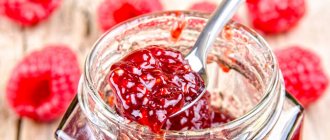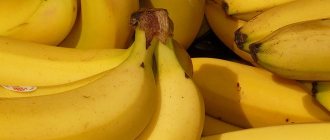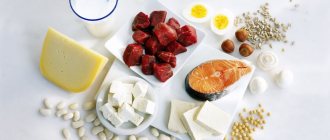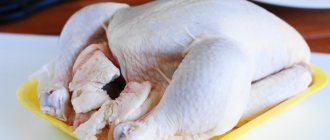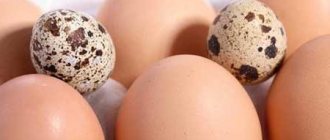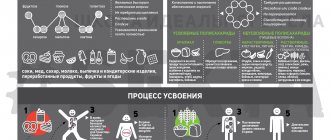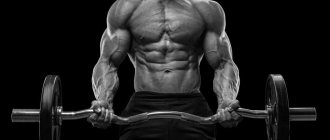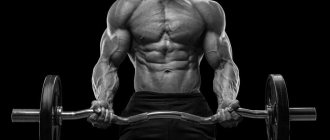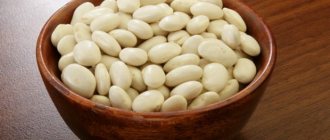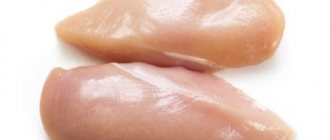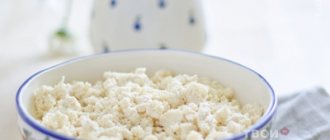Cottage cheese is a fermented milk product that can be added to the diet at any phase of training, be it the period of mass gain or cutting. Below you will find out how cottage cheese is useful, which type is better and whether you can eat fatty types or is it better to limit yourself to low-fat.
Let us remind you that the following parameters depend on a properly balanced diet:
- gaining muscle mass,
- quality of muscle fibers,
- the overall energy of the athlete.
We invite you to consider such a familiar product - cottage cheese. What can it give a bodybuilder, is it necessary to eat it at all?
How much protein is in 100 grams of cottage cheese: low-fat, low-fat, 0.1% - 0.6% fat
Low-fat cottage cheese is considered a real storehouse of useful microelements, full of casein protein, and at the same time there is not a gram of fat. Indeed, mothers who care for their children (girls and boys who dream of slender, toned figures, housewives who have decided to switch to proper nutrition) are sure that low-fat cottage cheese, or cottage cheese with a minimum amount of fat, is a panacea. Yes, it is a panacea, which is both tasty and healthy, and is absolutely no different from fatty varieties.
Let's start with the fact that a priori there is no natural low-fat cottage cheese. Therefore, cottage cheese marked low-fat, low-fat and with a fat content of up to 0.6% is a chemically processed product.
Now let's move on to the second part - taste. If you are familiar with the topic of flavor enhancers, then you have probably come across the fact that fat enhances the taste of a product, just like salt, sugar and chemical food additives. Now do you understand why children “spit” at low-fat cottage cheese and happily gobble up fatty sweet cottage cheese? Are you really ready to replace the fats necessary for a full-fledged existence with harmful sugar?
The ratio and proportionality of proteins and fats in cottage cheese
But there are also positive aspects - in low-fat cottage cheese the presence of proteins is almost similar to 9% fat cottage cheese, and at the same time the calorie content is almost half as much. For those who are losing weight or cutting, this is the ideal proportion.
| Fat content of cottage cheese | Amount of protein per 100 g of product |
| 0 | 16.5 |
| 0.1 | 16.7 |
| 0.2 | 18 |
| 0.3 | 18 |
| 0.6 | 18 |
As you can see, the maximum protein content is found in cottage cheese prepared according to GOST and having a fat content of 0.2% to 0.6%.
Recipes:
Classics of the genre
Ingredients: 300 grams of cottage cheese; 2 carrots; semolina (1 tbsp); sugar (1 tbsp); 1 egg; raisins (1 tbsp); flour (2 tbsp); olive oil (4 tbsp); salt - purely to taste.
Method of preparation: mix everything thoroughly and enjoy the taste.
Dedicated to those with a sweet tooth
Ingredients: cottage cheese (400 grams); 2 eggs; orange curd cheese; sour cream (200 grams); sweetener (5 tablets).
Method of preparation: as in the previous recipe, mix everything thoroughly and enjoy the delicacy.
Of course, you can change the composition, focusing on your own taste preferences.
Test “Natural or not”
If you doubt the “origin” of cottage cheese, then you should not take the risk, since a low-quality product will not only not help you achieve your goal, but also becomes a health risk.
We recommend that you conduct one extremely simple experiment, which will show you whether the product in front of you is a natural product or a soy product with various additives in its composition.
How much protein is in 100 grams of cottage cheese: average fat content
You have already learned how much protein is in 100 grams of low-fat cottage cheese, now it’s time to learn about the percentage of fat and protein in medium-fat cottage cheese. Many people choose this particular type of cottage cheese because, firstly, it is made from winnowed milk, and secondly, it seems to many to be the “golden mean” in the ongoing debate on the benefits and harms of fermented milk products of different fat contents. There are also special fans who like the combination of taste, as well as the reasonable ratio of fats, proteins and carbohydrates of cottage cheese.
| Fat content of cottage cheese | Amount of protein per 100 g of product |
| 1 | 16.3 |
| 1.8 | 18 |
Please note that at a fat percentage of 1.8% there is more protein per standard weight. Therefore, if you want to enjoy the taste and get maximum protein, choose cottage cheese with 1.8% fat.
Successful combination
With the right choice, proper consumption in accordance with your needs and following a diet, cottage cheese will perfectly help maintain the body in a healthy state.
Rich in protein and nutrients and at the same time low in calories, it fits well into a weight loss diet, an athlete’s diet, and a child’s diet. And an additional source of protein for adults can be protein mixtures “Formula 1” and “Formula 3” from Herbalife
They are designed to provide the body with valuable protein and give a long-lasting feeling of satiety, which is very important in a weight loss program. Choose your favorite flavor or alternate between different foods
You can find out how to buy Herbalife products on the official website.
How much protein is in 100 grams of cottage cheese: fatty varieties
And in conclusion, we will talk about how much protein is in 100 grams of fatty cottage cheese. This product is usually well received by chefs and confectioners, since the most delicious dishes and desserts are prepared from this type of cottage cheese. Proponents of the theory about the benefits of natural fats in human food also choose fatty cottage cheese.
| Fat content of cottage cheese | Amount of protein per 100 g of product |
| 9 | 16.7 |
| 11 | 16 |
| 18 | 14 |
As we can see from the table above, fatty varieties of cottage cheese actually contain less protein than a less saturated product.
But in addition to protein, cottage cheese is famous for vitamins B, A, C, as well as calcium, phosphorus and iron. It is also worth noting that during the production of cottage cheese there is often artificial enrichment with vitamins and calcium.
And one more important point: many manufacturers work not according to GOST, but according to specifications, so the percentage of fat content and protein saturation may differ slightly, but still differ. Therefore, we strongly recommend that you familiarize yourself with the composition of the product before purchasing.
Harm of cottage cheese to the human body
Despite all the benefits, you need to remember that there is a flip side to the coin. The product may cause harm to the body in the following cases:
- Food poisoning. Is it possible to get poisoned from cottage cheese - of course, if you violate the rules for storing it. All fermented milk products quickly deteriorate if left outside the refrigerator. This is an excellent breeding ground for E. coli. It can be stored for no more than three days from the date on the package at the indicated temperature. When buying a village product, there is also a high probability of getting cottage cheese poisoning. You need to know the seller personally and be confident in his integrity and cleanliness.
- High calorie fatty product. It is necessary to control the amount in order to eliminate the negative impact on the kidneys and liver due to the high protein and salt content. Hypertensive patients should also remember the measure, since salt retains fluid in the body, which means there is a risk of a jump in blood pressure.
- Allergy to cottage cheese. This reaction of the body is not that uncommon. Lactose intolerance is now common among children and women.
So, cottage cheese is the recognized king of therapeutic nutrition. It is rich in minerals, vitamins and protein. It is useful for people at any age, helps to cope with many diseases, and keep your figure in shape. The taste of this product is familiar to everyone from an early age and to most adults - mother’s cheesecakes will forever remain a favorite dish.
And it is important to remember that any food, including cottage cheese, should be consumed in moderation
How much protein is in 100 grams of cottage cheese: homemade cottage cheese
For an experienced buyer, it is clear that homemade cottage cheese is an approximate concept. This is a product that was obtained by souring and squeezing. Cottage cheese can be prepared either with or without heat. Because of this, the composition changes dramatically. It is also worth paying attention to the initial composition of the milk. All cows produce not only different amounts of milk, but also different fat content, and the saturation of milk with microelements directly depends on the cow’s nutrition.
But that's not all! In different cycles, even in the same cow, the fat content and saturation of milk changes. Therefore, if you want to know exactly how much protein is in 100 grams of homemade cottage cheese, you can submit the cottage cheese for chemical research. But the average indicators tell us that 100 g of homemade, full-fat cottage cheese (fat content ranges from 15-16%) contains 15.68 g of pure protein.
Do you think that's all? Of course not - because, unlike store-bought cottage cheese, homemade cottage cheese can be made not only from cow’s milk, but also from goat, sheep, horse and even deer milk! We left the average indicators of this milk in this table.
Chemical composition of homemade cottage cheese from different types of animals
Now you know absolutely everything about cottage cheese and can form your own individual opinion regarding cottage cheese, and we advise you to please your family with a delicious and healthy cottage cheese casserole. The recipe is here . And in conclusion, we recommend watching a video that tells you in detail about cottage cheese.
The benefits and harms of cottage cheese for weight loss and human health
Of course, it is healthy, rich in vitamins and nutrients necessary for the human body and maintaining the normal functioning of all vital systems. It owes its value among healthy lifestyle enthusiasts to its rich protein content. Moreover, in terms of the degree of digestibility by the body, protein is much higher than that which can be found in meat products, since most of this nutrient is represented by casein. It is characterized by the following features:
- rich content of essential amino acids;
- digests slowly, therefore providing a feeling of fullness for several hours;
- the milk fat contained in it is lighter and is better absorbed than that found in meat, so it can be consumed in a reasonable amount even by those people who suffer from liver diseases;
- in combination with other products, promotes their better absorption;
- normalizes intestinal microflora with the help of beneficial bacteria in its composition;
- the presence of calcium helps in the formation and strengthening of the skeleton, bone tissue and teeth in children, and also slows down the process of their destruction in older people;
- lowers blood cholesterol levels;
- normalizes the functioning of the gastrointestinal tract;
What are the benefits of cottage cheese for women?
- By including it in the diet during pregnancy and lactation, a woman ensures the normal development of the baby, as well as her own health, since if there is a lack of nutrients supplied with food, the child will take them from the mother’s body, which will negatively affect her well-being.
- Due to its antifungal effect, it can be used to prevent and combat the symptoms of thrush.
- During menopause, with a lack of calcium, it is able to compensate for its deficiency and ensure the presence of strong bones, teeth, and prevent increased hair loss.
What are the benefits of cottage cheese for men?
- The casein protein it contains in large quantities prevents muscle breakdown. It is this property that makes it one of the most popular nutritional sources among bodybuilding athletes, as well as people experiencing intense daily physical activity. With its help, you can not only maintain, but also gain muscle mass, while maintaining a low subcutaneous fat content.
- To ensure the health of the endocrine system and improve hormonal balance, men are recommended to include it in their diet regularly, as it ensures the production of the male hormone - testosterone.
Cottage cheese is indispensable in baby food, as well as in the diet of older people. Both categories need to provide the body with calcium. However, there are children who cannot be forced to eat this healthy product. The way out of this situation is to serve it with honey or fruit, prepare a casserole, curd mousse, pudding or cheesecakes. Sometimes the problem lies in fat content. Often parents give their children fatty homemade products, which the child’s body digests with great difficulty. It may be worth giving preference to more dietary options.
Which cottage cheese is healthier and better for weight loss: fat or low fat?
For many modern people who monitor the composition of their daily diet and try to keep themselves in good shape, calorie content is important, as well as the ratio of proteins, fats and carbohydrates in foods. For cottage cheese, these indicators depend on the fat content of the milk from which the product is made. In accordance with the content and ratio of nutrients in raw materials, several varieties are distinguished. The best option is a low-fat product. It contains few calories, but it is rich in the most valuable protein - casein. Its content is even higher than in options with higher fat content. But is low-fat cottage cheese really useful? Is it worth it, without any hesitation or thought, to take a pack from the store counter that says “diet”? This issue has its own nuances that you need to know in order to make the right choice.
